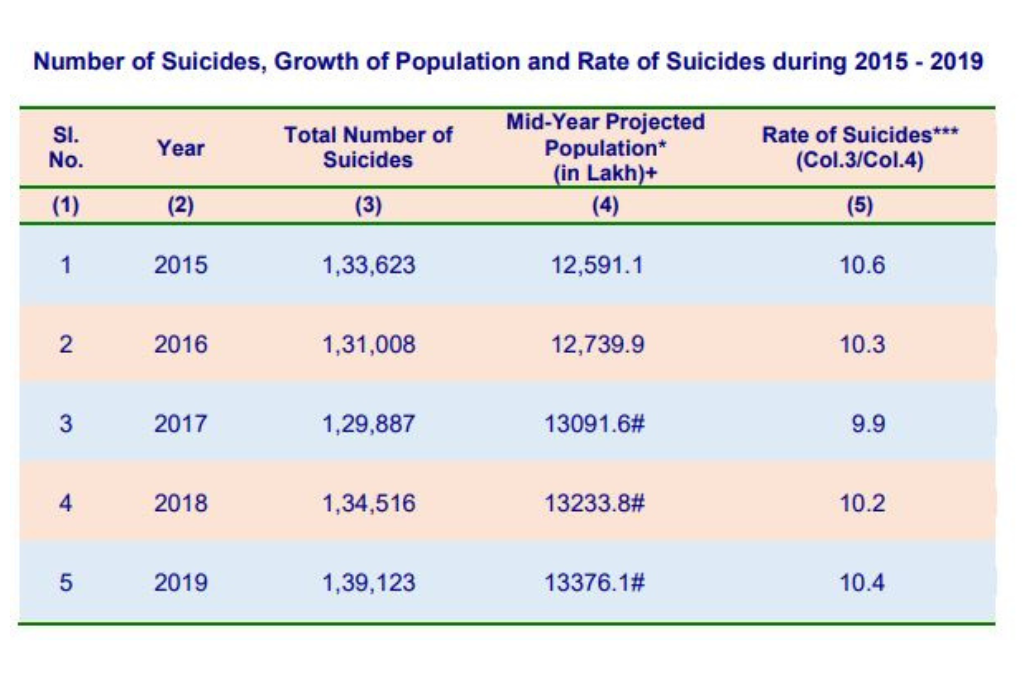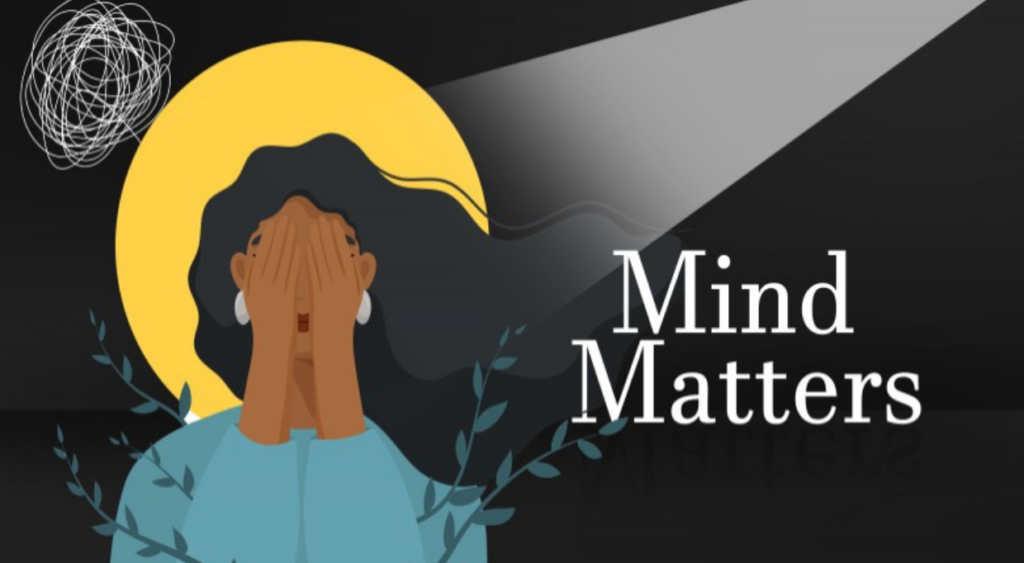Case 1: 23-year-old Puhor Hazarika (name changed) was a happy-go-lucky boy. He was a popular student, a responsible son, and a reliable friend. The budding artist also excelled in debate competitions. Puhor was the life and soul of the party.
However, Puhor’s life took an unexpected turn after his mother passed away in a road accident. Puhor started to experience frequent mood fluctuations, distanced himself from social interactions, and appeared withdrawn. He experienced a “never-felt-before sadness.” The symptoms increased as the days passed by.
His worried father and friends tried umpteen ways to make him “feel happy” and “bring him back to normal life.” But something was amiss. Everyone told his father, “It’s just a phase. He is just sad…he will be okay.”
But Puhor was not okay – mentally. He required immediate medical intervention. Unfortunately, the boy who used to light up any party took his own life before his father could reach out to mental health experts.
Case 2: 18-year-old Parthana Banerjee is undergoing treatment for her mental health. The fashion design aspirant recently visited a wedding with her mother.
While chit-chatting with the guests, Parthana, quite nonchalantly, talked about the treatment she is undergoing for her mental health, much to the disgust of her mother.
Parthana is recovering and is also encouraging others to talk about mental health. She proudly calls herself a “Depression warrior.”
According to the World Health Organization (WHO), depression is a common illness worldwide, affecting more than 264 million people. More women are affected by depression than men, according to the WHO.
The WHO says, “Depression is characterized by persistent sadness and a lack of interest or pleasure in previously rewarding or enjoyable activities. It can also disturb sleep and appetite; tiredness and poor concentration are common. Depression is a leading cause of disability around the world and contributes greatly to the global burden of disease.”
Despite all the advances made in understanding mental illness, a large portion of people is still hesitant to seek help due to the prevalent stigma, prejudice, and discrimination against those with mental disorders. Experts have stated that having major depression increases the risk of suicide.
“There are several factors behind people avoiding or delaying seeking treatment. In our society, a man is expected to be emotionally strong. A man is assumed to be weak if he cries in public. On the other hand, a woman is scared of being judged, of being called an attention-seeker. She might be called mad, lose her job, or have marriage proposals withdrawn. The prevalent gender bias in our society also plays a major role in people not seeking help,” says Dr Sashibha Barman, a Guwahati-based MD in Emergency Medicine.
She adds, “Cases of anxiety are on the rise among children. One of the reasons could be the lack of physical presence of parents, who are busy with their careers. The absence of parents often pushes children into addiction (social media, video games, drugs, etc.). Such addictions might lead to drastic behavioural changes in children. If not treated timely, such addictions can turn out to be dangerous.”
Dr Barman also mentions that many people experienced psychological distress due to the Covid-19-induced restrictions. “We humans are social beings. We cannot live in isolation. The pandemic created an air of uncertainty all around. The only way to beat the blues is to bond with family and friends,” she suggests.
Dr Bornali Das, a Guwahati-based mental health expert, shares that the number of cases of mental illness is rising among young adults in the city.
“Due to the pandemic, some people are experiencing job loss, migration, and financial instability. Another group is finding it difficult to adjust to the work-from-home format. They are required to be constantly online and are overburdened with work. There are deadlines to meet, Zoom meetings to attend. Such abrupt, drastic changes do take a toll on our mental health. People are experiencing irritation, compassion fatigue, and a lack of support from colleagues and juniors,” says Dr Das.
Dr. Das suggests that schools teach life skills to children. “Even teachers should be sensitized on communication style and patterns with children. The emotional well-being of children should be the top priority of a school. If trained, a teacher can become a counsellor for children in distress. Young adults, if guided timely, recover fast.”
When asked about young adults claiming to be ‘depressed’ at the drop of a hat, Dr Das says, “Teenagers and young adults have this tendency to pick up certain nomenclatures. Feeling sad from time to time is a natural reaction to situations we come across in daily life. Misusing the term ‘depression’ affects the sensitivity of the situation.”
If one is sulking for over two weeks, lacks enthusiasm in usually pleasurable activities, experiences fatigue, loss of appetite without an underlying cause, lacks self-esteem, has low concentration, or feels hopeless, helpless, and worthless, these are some of the symptoms of depression.
When asked about celebrities opening up about mental health, Dr Das says, “It’s a good sign but doesn’t suffice. A section of people is still hesitant to seek help or talk about mental health. There is no shame in asking for help. Educational institutes, companies, colleagues, friends, and family members must encourage a person to seek medical help if required. Companies must normalize taking a break for mental health. Depression affects a person’s ability to function normally and reduces productivity.”
Dr Das suggests taking periodic breaks to break the monotony of regular life. “Take breaks…do things that give you pleasure. Spend time with family, meet new people, and build social connections. Go to a party with friends and don’t talk about work. Journaling can help to a great extent to soothe your frayed nerves. If you have a partner, do joint activities, as it will help you relax and also strengthen your bond.”
On the other hand, Dr Shyamanta Das, Assistant Professor in the Department of Psychiatry at Gauhati Medical College, is happy that, with time, young adults are coming forward to seek medical intervention.
“Young adults today are more aware of their mental health compared to their parents. I have patients coming to me, going against their parents’ advice due to the stigma attached to mental illness,” says Dr Shyamanta.
He adds, “Just like our immune system, emotional mechanisms differ from person to person. Some people are born with the skills to fight against the odds. They can cope with complex and difficult situations with ease. On the other hand, a certain section of people fail to deal with changes and become victims of depression or other mental illnesses. But coping mechanisms can be taught during therapy.”

Dr Shyamanta believes celebrities and the media can play a crucial role in eradicating the stigma associated with mental health.
“When a celebrity talks about suffering from mental health in a public platform, it gives courage to a common person to come forward and seek help. It helps in busting the myths associated with mental health. Many deaths by suicide can be reduced if one is encouraged to take counselling or medication for the well-being of his or her mind,” says Dr Shyamanta.
He adds, “On the other hand, the media must refrain from creating mass hysteria around any unnatural death, as it affects the well-being of a person undergoing treatment.”
According to experts, genetics, substance misuse, anxiety disorders, grief, lack of closure, chronic illnesses, administration of steroids, and deficiencies in Vitamin B12 and Vitamin D are some of the reasons that play a role in depression.
“Compassion and empathy are the keys to the well-being of your mental health. Be kind, help people in need, and never shy away from asking for help. Pick up a hobby and pursue it. Connect with yourself,” Dr Shyamanta suggests further.
About 800,000 people die by suicide worldwide every year. According to data released by the National Crime Records Bureau (NCRB), over 1.39 lakh Indians died by suicide in 2019. Hanging was found to be the most common method of taking one’s life.
A total of 1,39,123 suicides were reported in the country during 2019, showing an increase of 3.4 per cent compared to 2018. The suicide rate also increased by 0.2 per cent in 2019 over 2018, as per the NCRB data.
“Every year, more than 1,00,000 people commit suicide in our country. There are various causes of suicides, such as professional/career problems, a sense of isolation, abuse, violence, family problems, mental disorders, addiction to alcohol, financial loss, chronic pain, etc.,” the NCRB said in the ‘Suicides in India 2019’ report.
“One must always live with the belief that there is light at the end of the tunnel. Try to reach out to your friends or trusted people when you feel like the whole world is falling on your shoulders. Life is precious,” suggests Dr Barman.
Indeed. Shed away your inhibitions and talk about being sad for no reason, this heavy feeling in your chest, panic attacks while just catching up with an old friend. Let’s talk. Let’s listen. Let’s not judge. Let’s hold each other’s hands. Where there’s life, there’s hope, isn’t it?
The article was first published on December 7, 2021.







